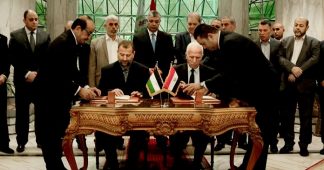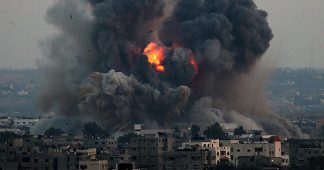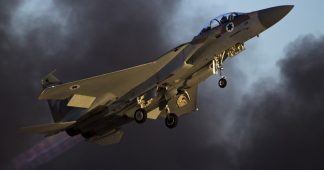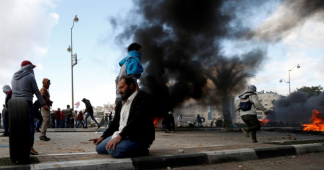“The Israeli army’s characterization of the demonstrations diminishes their gravity, but also unwittingly cast Hamas as a responsible, sophisticated political organization” writes Amira Hass in Haaretz, under the title “It’s Not a ‘Hamas March’ in Gaza. It’s Tens of Thousands Willing to Die”.
“..A call from Hamas” the famous journalist points out, “ is enough to get tens of thousands of unarmed demonstrators to face Israeli snipers along the border. In contrast, calls by Fatah and the PLO in the West Bank, including Jerusalem, don’t bring more than a few thousand people to the streets and flash points with the police and the army… The decisions on the March of Return events was made jointly by all the groups in Gaza, including Fatah. But the most organized group — the one that can work out the required logistics, equip the “return camps” (points of assembly and activity that were set up a few hundred meters from the Gaza border), control the information, maintain contact with the demonstrators and declare a general strike to protest the embassy move — is Hamas. This doesn’t mean that all the demonstrators are Hamas supporters or fans of the movement who are obeying its orders. Not at all. The demonstrators come from all sectors of the population, people who identify politically and those who don’t.
The army’s claims to journalists that this is a “Hamas march” are diminishing the weight of these events and the significance of tens of thousands of Gazans who are willing to get hurt, while ironically strengthening Hamas’ status as a responsible political organization that knows how to change the tactics of its struggle, while also knowing how to play down its role” the Israeli journalist writes in her main article.
The army’s claims to journalists that this is a “Hamas march” are diminishing the weight of these events and the significance of tens of thousands of Gazans who are willing to get hurt, while ironically strengthening Hamas’ status as a responsible political organization that knows how to change the tactics of its struggle, while also knowing how to play down its role” the Israeli journalist writes in her main article.
“Abbas declared a period of mourning and ordered flags lowered for three days, along with a general strike Tuesday. This is the same Abbas who was planning a series of economic sanctions against the Strip in another attempt to quash Hamas” writes Amira Has who is the Haaretz correspondent for the Occupied Territories. And adds “The residents of the Gaza Strip, with their dead and wounded, are influencing internal Palestinian politics, whether they know it or not, whether intentionally or not. No one would dare impose such sanctions now. Time will tell whether anyone will come to the conclusion that if Israel is killing so many during unarmed demonstrations, they might as well return to individual armed attacks — as revenge or as a tactic that will lead to fewer Palestinian victims”.
“Everyone in the Gaza Strip knows the hospitals are way over capacity and that the medical teams are unable to treat all the wounded. … Everyone knows that wounded people who were operated on are being discharged too soon and that there’s a shortage of essential drugs for the wounded, including antibiotics. … All the signals, warnings, the many fatalities in the past few weeks and the disturbing reports from the hospitals did not deter the tens of thousands of demonstrators Monday. The right of return and opposition to the relocation of the U.S. Embassy to Jerusalem are worthy goals or reasons, acceptable to all… But not to the extent that masses of West Bank and East Jerusalem residents would join their brothers in the Gaza Strip. There, the most desirable goal for which to demonstrate is the obvious demand and the easiest to implement immediately — to give Gazans back their freedom of movement and their right to connect with the outside world, especially with members of their own people beyond the barbed wire surrounding them. This is a demand of the “ordinary” public and not a private Hamas matter, since both its leaders and rank-and-file members know very well that once they enter the Erez crossing between Israel and the Strip, they will be arrested”, the article concludes











